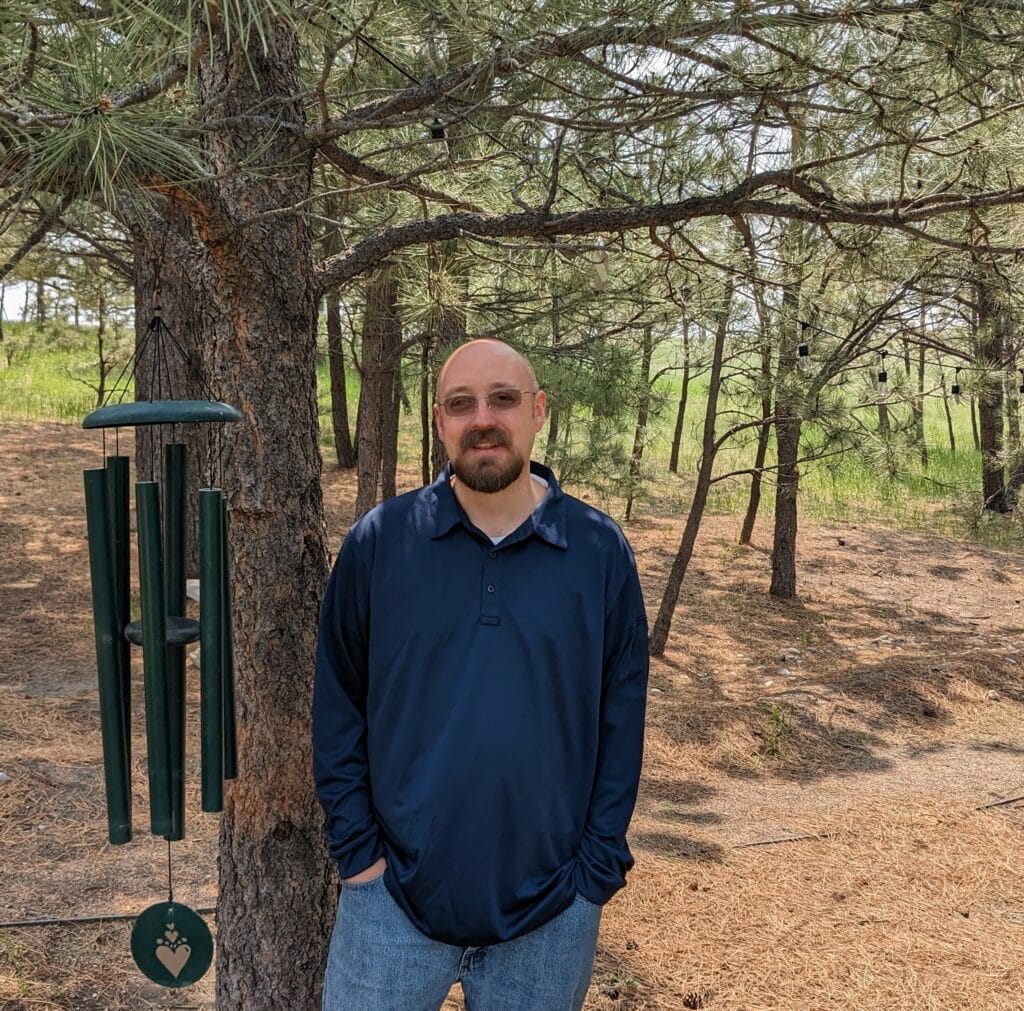SMART Recovery
SMART Recovery in Colorado
Dealing with recovery from addiction can be incredibly challenging. At Healing Pines, we use a variety of drug and alcohol recovery treatment strategies to help our clients down the road to recovery, including SMART recovery strategies. We understand that every path to recovery is different, and we aim to help our clients find the approach that works for their unique needs.
Request a Confidential Callback
SMART Recovery Center near Colorado Springs
Healing Pines is a residential addiction treatment center located near Colorado Springs. Here, patients will find programs designed to help men conquer the rehabilitation process’s emotional challenges, including addressing their unique experiences, decisions, and paths. We aim to help our clients develop the tools they need to step out of addiction and live in full recovery.
Men's Treatment
Learn more about our substance abuse treatment program for men in Colorado and how we can help you find long-term healing from addiction.
Residential Inpatient
We offer supportive inpatient rehab and residential treatment at our beautiful home in the scenic small town of Elizabeth, Colorado.
Medication-Assisted
For individuals struggling with substance abuse and mental health (dual diagnosis) we offer comprehensive therapeutic modalities.
What is SMART Recovery?
SMART stands for Self-Management and Recovery Training. This transformative strategy is designed to empower people moving out of the addictive cycle, providing them with the tools they need to take control of their lives as they handle addiction and manage the associated recovery process. This accessible recovery method is backed by science and has helped many past clients move forward with their lives free of the bondage of addiction.
The SMART recovery program relies on four basic principles:
As patients progress toward recovery, they will need to work to build and maintain their overall motivation. Motivation may be as unique as each patient. In many cases, patients will need to clearly define why they want to step out of the addictive cycle before they can start to break it. Furthermore, they may need reminders of those motivations when the going gets tough. The SMART recovery model helps patients develop strategies for maintaining that vital motivation.
The urge to use drugs or alcohol can last long after the detox process comes to an end. As part of SMART recovery, patients will learn strategies that can help them cope with those urges without turning to addictive behaviors.
There are a lot of feelings that can come up through the recovery process. Often, addicts struggle to manage those feelings and behaviors in a healthy way, especially if they previously turned to drugs or alcohol to help them cope with those addictions. The SMART recovery process can help patients learn how to cope with those feelings in a healthier way.
A balanced life is key to a SMART recovery strategy. A balanced life may mean decreasing stress, looking at healthy alternatives for previous activities, and finding ways to connect with hobbies, friends, family, and things outside the addictive cycle. Many patients find that living a balanced life makes it much easier to avoid choices that could result in addictive behaviors.
What Does SMART Recovery Treat?

Don't Let Anything Stop You From Getting Help.
We work with most major commercial insurance plans which can help cover up to 100% of the costs associated with treatment.
The Benefits of a Colorado SMART Treatment Center
Using a Colorado SMART treatment center can significantly impact a patient’s overall recovery.
Focus on Recovery
In many cases, patients need to receive access to tools that can help them through the recovery process. Many addicts lack coping skills that could help them manage addictive behaviors more effectively in the future.
Others may have a dual diagnosis that makes it more difficult to cope, and addressing and treating an underlying condition can make it easier to manage those symptoms. A Colorado treatment facility that uses SMART recovery tactics can help patients access those essential tools, which can ultimately help them step away from addiction.
Access to Key Tools
An inpatient treatment style in the early days of recovery can offer several advantages. In a SMART treatment center in Colorado, patients can spend their time focusing on the recovery process.
Instead of having the demands of the world pounding at them, they can stay focused on breaking the addictive cycle and moving forward with a greater degree of freedom. As a result, many patients can make more significant strides that can help them achieve mental wellness and break the addictive cycle.
Look at the Whole Person
There are often underlying challenges that can make it more difficult for patients to manage symptoms of addiction. Usually, the recovery process involves altering physical processes and behaviors like mental ones.
Focusing on mind and body, including enhanced physical fitness and nutrition, can often help patients manage symptoms of addiction and live healthier lives. Nutrition and fitness can also help manage symptoms of underlying mental conditions that can pose challenges on the road to recovery.
Get Back to Nature
There’s nothing quite like the gorgeous scenery in the Colorado Springs area. Getting out into the great outdoors can help improve overall mental wellness and even decrease symptoms of addiction. There’s no place like Colorado Springs for doing precisely that.
At Healing Pines, you will access various outdoor activities, including horseback riding, hiking, disc golf, and many other outdoor experiences that can help improve the treatment process and overall treatment outcomes. Many men lived very active lives before addiction took hold and destroyed their drive. Returning to nature can help restore those former desires and make a critical step away from addiction.
The leadership and staff were committed to my success.
Paul is a man of integrity which flows through his team. I have been to other recovery programs and HPR stands far above them all. The small group structure offers a more intimate and personalized experience. This was so much more beneficial to my recovery than facilities preaching a "one-size-fits-all" solution to larger and fragmented groups. It was like having personal and knowledgeable therapists dedicated to me for a full month! They went out of their way to understand the root of my challenges and construct a path for improvement that is unique and relatable to me. This was a huge benefit!
Jay C
It saved my life, in every sense.
I spent a month at Healing Pines Recovery. The actual location itself is unreal. A beautiful cabin lodge, with gorgeous scenery. The rooms are large, queen beds, very comfortable! Great bathrooms with great showers! There is a pool table, slam jam, (Christine! 😉 frisbee golf, and daily access to a nearby gym. The property also has a pickle ball court that was used daily, Zoey the counselor beat us men constantly!
Clay M
My experience with Healing Pines Recovery has been wonderful.
My husband was their client, and they helped him be able to help himself. He is doing amazing! I think the combination of counseling, physical labor, meditation, AA, and just the beauty of the place itself all had a very positive impact on him. They really cared about him, and that did not stop just because he came home. Also they have counseling for the families and it has really helped me a lot. Heather is awesome! I thank God that we had them in our lives when we were most vulnerable.
Susan M
We wanted to share our gratitude to the staff.
Our son was under the care of Healing Pines recently and we wanted to share our gratitude to the staff. There were many challenges in his pursuing treatment, and thankfully Paul and Heather C helped us navigate all of them skillfully with patience and compassion.
Jim E
You'll get your life back!
Healing Pines Recovery is/was instrumental in setting me up for long term success in my recovery journey. I've been to treatment centers in the past and HPR is nothing like anything I've attended before. They're very small, intimate, and hands-on approach to recovery was exactly what I was looking for when seeking treatment. I knew that a large, one size fits all program like those offered by many other treatment centers in Colorado wouldn't provide me with the help I desperately needed. Paul and his Team are incredible and I would highly recommend HPR to anyone who needs help starting their recovery journey. Big shout out to James for all of his guidance during my time at HPR. His grace, knowledge, understanding, and direction were/are key to my continued success in recovery. One HUGE piece of the puzzle I love is the after care I've received from HPR... I am in constant contact with Paul, James, and many other staff members through the their alumni programs and it has helped me so much with life after HPR. This program was truly a miracle in my life and I know it will be for many other men struggling with addiction and/or alcoholism. You'll get your life back!
Nicholas P
This is truly a great recovery facility.
My learning experience here was something I’ll take with me throughout my whole life. The staff here will always be a part of my family and I am beyond thankful for everything they have done and continue to do for my well-being.
Gunnar P
I can't speak more highly of Healing Pines Recovery & Addiction Center.
It is located in a beautiful Colorado location with lots of outdoor activities and fresh air. They have a very knowledgeable and professional staff that goes above and beyond to meet your needs.
Riley K
I couldn’t have been at a more amazing place to begin this journey.
Seriously an amazing place. Everything from how beautiful the house and the property it sits on down to every person staffed there was nothing less than perfect. More than highly recommended in every sense. If you’re reading this and trying to find the right place for treatment and recovery I would absolutely look no further. Everyone’s recovery is different and we all need a comfortable place with people we can trust through this battle, healing pines understood that everyone’s path is different and they 100% cater to that. I couldn’t have been any luckier with finding Healing Pines. I won’t go any deeper and start to thank everyone there individually, But I want to express my gratitude to everyone on the HEALING PINES TEAM. Without you all, my path in sobriety would not look anywhere near the way it looks today. Seriously from the bottom of my heart thank you!
James M
Begin Your Transformation
Contact our caring team today to learn more about our program.
Find Recovery at Healing Pines
Are you ready to take steps to start breaking the addictive cycle? Do you want to live a healthier, more balanced life, including spending time outdoors and taking advantage of the incredible healing power of nature? At Healing Pines, we aim to help our clients recover by utilizing various treatment strategies and solutions. Take those first steps toward recovery.
Contact us today to discuss our inpatient treatment options.
Schedule a Tour Today
Come discover why Healing Pines Recovery is you top choice for men’s addiction treatment in Colorado and beyond.
Begin Your Journey & Escape Addiction
The first step can be the hardest. Fill out the form or call us at (720) 575-2621. You will be connected with a Healing Pines Recovery specialist who can answer your questions and help you get started.
Let Us Help You
Speak to Someone Right Now






